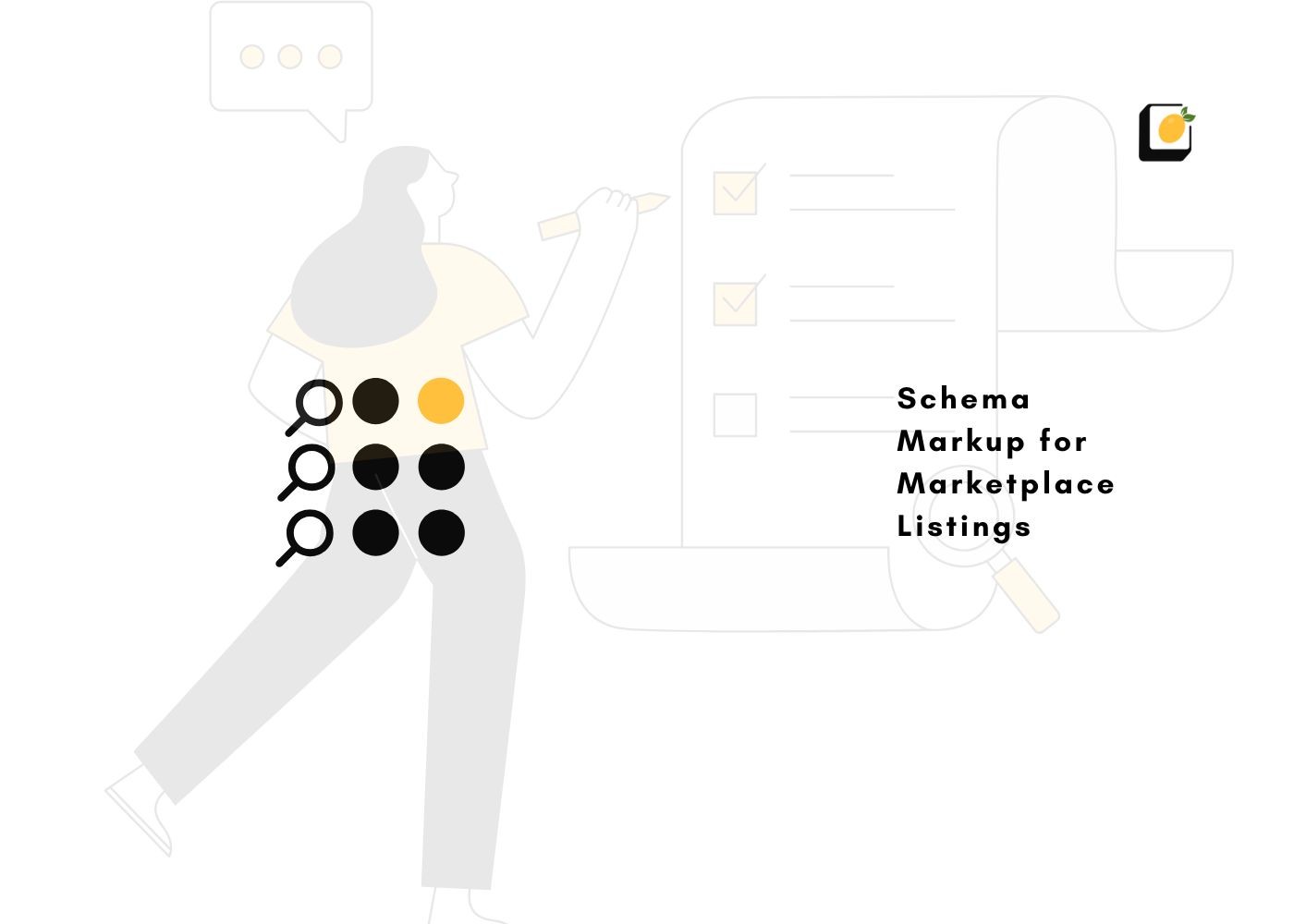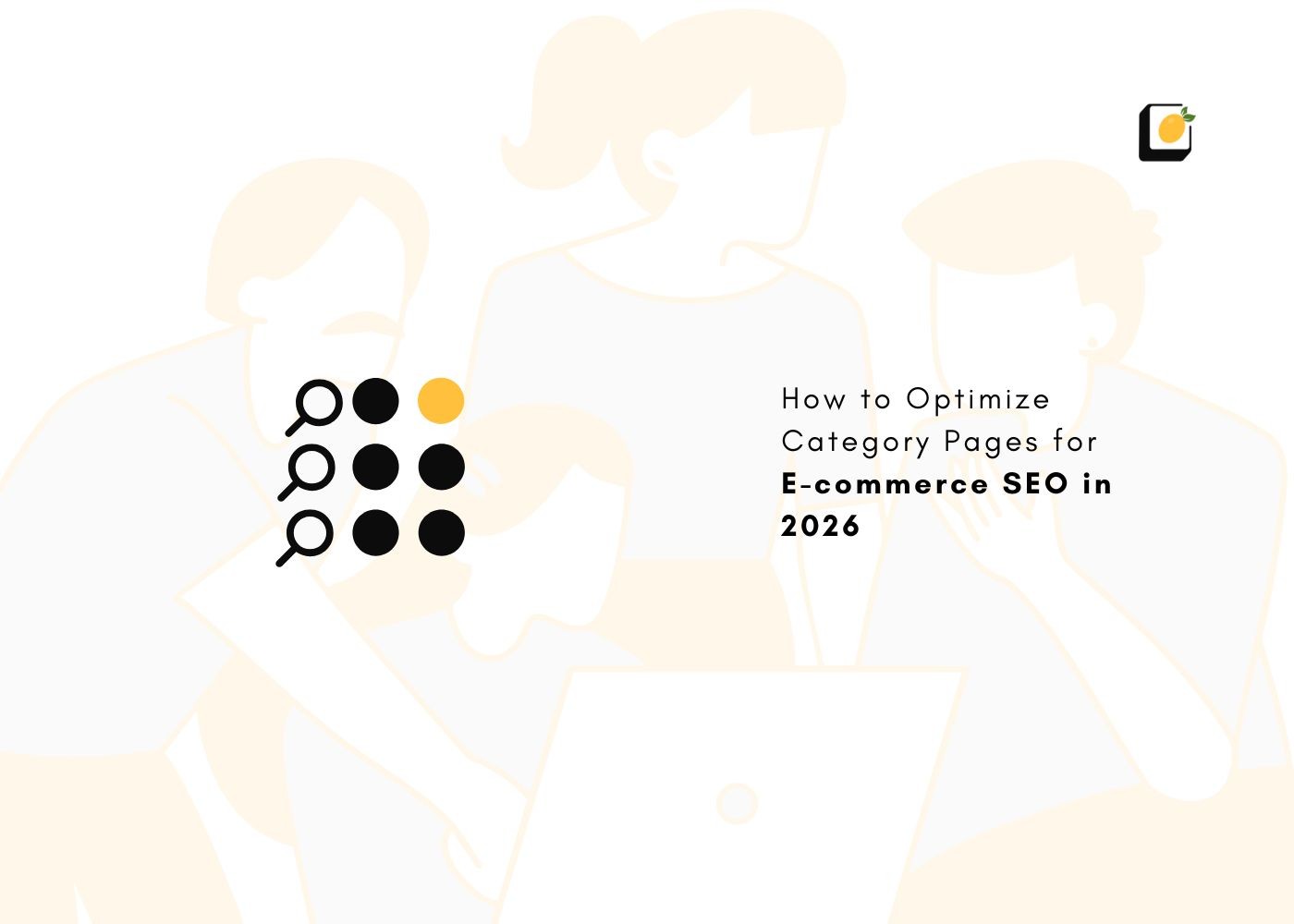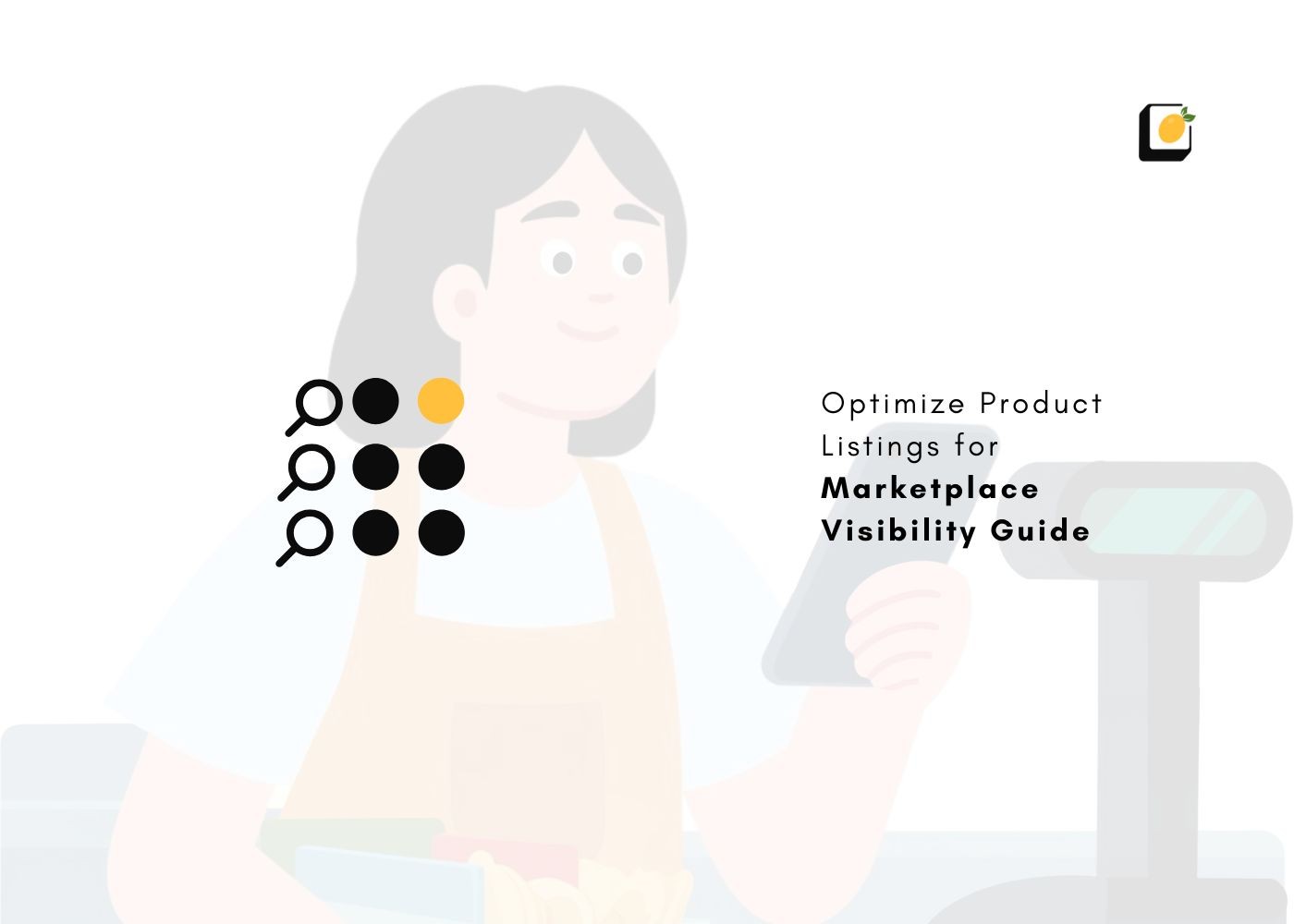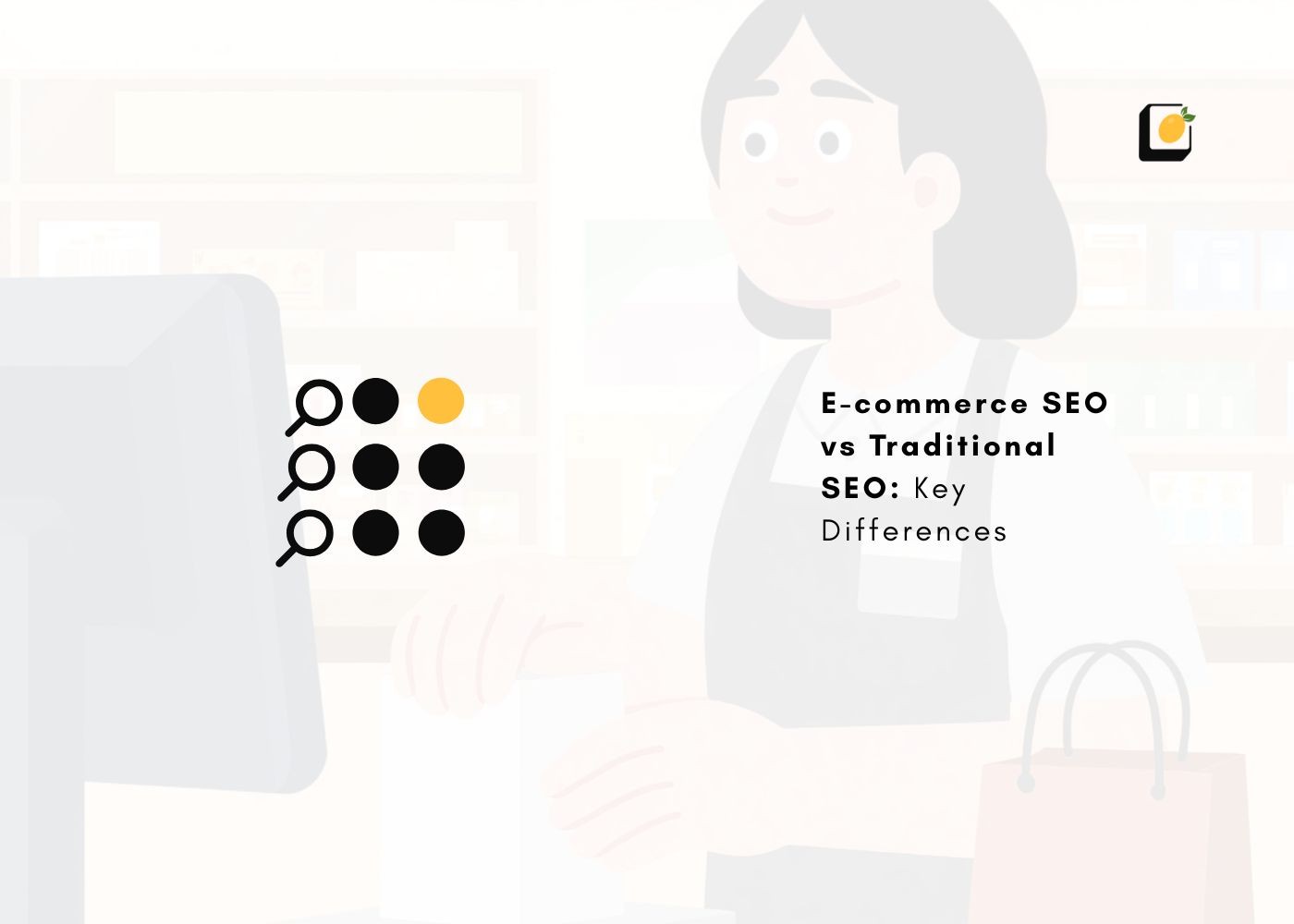Evaluating Your Shopify Store's SEO: What You Need to Know
Join 500+ brands growing with Passionfruit!
In today's competitive e-commerce landscape, a robust SEO strategy is vital for your Shopify store's success. With over 5.3 million Shopify stores worldwide competing for visibility, understanding how to evaluate and optimize your store's SEO performance can make the difference between thriving and merely surviving online. This comprehensive guide will walk you through everything you need to know about Shopify SEO evaluation, providing you with the tools and knowledge to enhance your online visibility and drive more organic traffic to your site.
What is a Shopify SEO Score and Why Does It Matter?
An SEO score is a metric that reflects the overall health and effectiveness of your Shopify store's search engine optimization. This numerical representation considers various critical factors including on-page optimization, technical SEO elements, content quality and relevance, backlink profile, site speed and performance, and mobile-friendliness1.
A higher SEO score typically indicates that your Shopify store is well-optimized for search engines and has a better chance of ranking well in search results1. For Shopify stores specifically, a score of 80 or above on a 100-point scale is generally considered good, though the most important factor is how your score compares to your competitors and whether it's improving over time.
What Makes a Good Shopify SEO Score:
80-100: Excellent optimization with strong technical foundation
60-79: Good performance with room for improvement
40-59: Average performance requiring significant optimization
Below 40: Poor performance needing immediate attention
How to Check Your Shopify SEO Score: A Step-by-Step Approach
Checking your Shopify store's SEO score is an essential first step in evaluating your overall SEO performance1. Here's how to conduct a comprehensive evaluation:
Method 1: Shopify's Built-in SEO Analyzer
Shopify provides a basic SEO health check tool within the platform. To access it:
Go to your Shopify admin panel
Click on "Online Store"
Select "Themes"
Click "Customize"
Look for the "SEO" section to see your store's basic SEO health status
Method 2: Third-Party SEO Tools
While Shopify's built-in tool is helpful, it's often beneficial to use more comprehensive third-party tools for a more in-depth analysis. Popular options include SEMrush, Ahrefs, Moz Pro, and Google Search Console.
Method 3: Manual Review Process
In addition to using automated tools, it's important to manually review key elements of your store, such as meta titles, descriptions, and URL structures. This hands-on approach often reveals optimization opportunities that automated tools might miss.
Essential Tools for Comprehensive Shopify SEO Evaluation
To get a complete understanding of your Shopify store's SEO performance, you'll need to use a combination of specialized tools. Here are the most effective tools for evaluating your SEO:
1. Google Search Console: Your Free SEO Foundation
Google Search Console is a free tool that provides valuable insights into how your site performs in Google search results. Key features include:
Search Performance Data: Track which queries drive traffic to your site
Click-Through Rates (CTR): Monitor how compelling your titles and descriptions are
Indexing Status: Ensure all your important pages are discoverable
Mobile Usability Issues: Identify and fix mobile optimization problems
Core Web Vitals Performance: Monitor page speed and user experience metrics
Pro Tip: Set up weekly performance reports to track your progress over time and identify trends in your organic traffic.
2. Google Analytics: Understanding User Behavior
Google Analytics is crucial for understanding how users interact with your site. Essential metrics include:
Organic Traffic Volume: Track visitors from search engines
User Behavior Patterns: Understand how visitors navigate your store
Conversion Rates: Measure SEO's impact on sales
Bounce Rates: Identify pages that need improvement
Page Load Times: Monitor technical performance
3. SEMrush: Advanced Shopify SEO Analysis
SEMrush offers comprehensive SEO features specifically valuable for Shopify stores:
Keyword Research and Tracking: Discover profitable keywords for your products
Competitor Analysis: Understand what's working for similar stores
Site Audit Tools: Identify technical SEO issues
Backlink Analysis: Monitor your link building progress
On-page SEO Recommendations: Get specific optimization suggestions
4. Ahrefs: Powerful SEO Intelligence
Ahrefs provides robust SEO analysis capabilities:
Keyword Research: Find low-competition, high-value keywords
Backlink Analysis: Track your link profile and identify opportunities
Content Gap Analysis: Discover content opportunities your competitors are missing
Site Audit Features: Comprehensive technical SEO analysis
Rank Tracking: Monitor your position for target keywords
5. Shopify-Specific SEO Apps
Several Shopify-specific SEO apps available in the Shopify App Store can help you evaluate and improve your store's SEO:
Top Shopify SEO Apps:
Plug in SEO: Automated SEO monitoring and fixes
SEO Manager: Comprehensive SEO optimization toolkit
Smart SEO: Intelligent SEO automation and optimization
Proven Strategies for Improving Your Shopify Store's SEO Score
Once you've assessed your Shopify store's SEO performance, it's time to focus on improvement1. Here are key strategies to boost your SEO score:
Product Page Optimization
Optimize Product Titles and Descriptions: Ensure your product titles and descriptions include relevant keywords and provide valuable information to potential customers. Use this formula:
Primary Keyword + Brand + Key Feature + Product Type
Example: "Wireless Bluetooth Headphones - Premium Noise Cancelling Over-Ear Headphones by [Brand]"
Enhanced Product Descriptions: Create unique, detailed descriptions that address customer questions and incorporate long-tail keywords naturally.
Technical SEO Improvements
Improve Site Structure: Create a logical and easy-to-navigate site structure that helps both users and search engines understand your content. Implement a clear hierarchy:
Homepage → Category Pages → Subcategory Pages → Product Pages
Enhance Site Speed: Use Shopify's built-in speed optimization features and consider using a content delivery network (CDN) to improve your site's loading times. Target metrics:
First Contentful Paint: Under 1.8 seconds
Largest Contentful Paint: Under 2.5 seconds
Cumulative Layout Shift: Under 0.1
Content Marketing Strategy
Create High-Quality, Relevant Content: Regularly publish blog posts, buying guides, and other content that provides value to your target audience and incorporates relevant keywords. Focus on:
How-to guides related to your products
Industry trends and insights
Customer success stories
Product comparison articles
Off-Page SEO Tactics
Build High-Quality Backlinks: Focus on earning backlinks from reputable, relevant websites in your industry. Effective strategies include:
Guest posting on industry blogs
Creating shareable infographics
Partnering with influencers and bloggers
Submitting to relevant business directories
Mobile Optimization
Optimize for Mobile: Ensure your Shopify store is fully responsive and provides a great user experience on mobile devices. Key considerations:
Touch-friendly navigation elements
Fast mobile loading speeds
Easy-to-read text without zooming
Simplified checkout process
Schema Markup Implementation
Implement Schema Markup: Use structured data to help search engines better understand your content and potentially earn rich snippets in search results. Essential schema types for Shopify:
{"@context": "https://schema.org/",
"@type": "Product",
"name": "Product Name",
"description": "Detailed product description",
"offers": {
"@type": "Offer",
"price": "29.99",
"priceCurrency": "USD",
"availability": "https://schema.org/InStock"
}
}
Advanced Shopify SEO Evaluation Techniques
Competitor Analysis Framework
Conduct regular competitor analysis to identify opportunities and gaps:
Identify Top Competitors: Use tools like SEMrush to find stores ranking for your target keywords
Analyze Their Content Strategy: Study their blog topics, product descriptions, and page structures
Review Their Technical Implementation: Check their site speed, mobile optimization, and schema markup
Monitor Their Backlink Profiles: Identify potential link building opportunities
Local SEO for Shopify Stores
If you serve specific geographic markets, implement local SEO strategies:
Location-Specific Landing Pages: Create dedicated pages for major markets you serve, such as:
"Shopify SEO Services in New York"
"E-commerce Optimization for Miami Businesses"
"Shopify Store Development in Raleigh, NC"
Local Schema Markup: Implement local business schema if you have physical locations or serve specific areas.
Performance Monitoring and KPI Tracking
Essential SEO Metrics to Track:
Metric | Target | Monitoring Frequency |
|---|---|---|
Organic Traffic | 20% monthly growth | Weekly |
Keyword Rankings | Top 10 for primary keywords | Daily |
Click-Through Rate | 3-5% average | Weekly |
Conversion Rate | 2-4% from organic | Monthly |
Page Load Speed | Under 3 seconds | Monthly |
Mobile Usability Score | 90%+ | Quarterly |
Shopify SEO Tools Comparison: Choosing the Right Solution
Free vs. Paid Tools Analysis
Best Free Tools:
Google Search Console: Essential for monitoring search performance
Google Analytics: Comprehensive traffic and behavior analysis
Shopify's Built-in SEO Features: Basic optimization capabilities
Premium Tools Worth the Investment:
SEMrush ($119/month): Comprehensive keyword research and competitor analysis
Ahrefs ($99/month): Superior backlink analysis and content gap identification
Moz Pro ($79/month): User-friendly interface with strong local SEO features
Shopify App Store SEO Solutions
Top-Rated SEO Apps:
App | Price | Best For | Key Features |
|---|---|---|---|
Plug in SEO | $20/month | Automated optimization | Real-time SEO monitoring, automatic fixes |
SEO Manager | $30/month | Comprehensive control | Advanced meta management, sitemap control |
Smart SEO | $10/month | Beginners | Simple optimization, bulk editing |
The Business Impact of Shopify SEO: What Results to Expect
Timeline for SEO Results
SEO is a long-term strategy, and results timeline varies by competition and implementation quality:
Month 1-2: Foundation Building
Technical SEO fixes: 15-25% improvement in crawlability
Page speed optimization: 10-20% boost in conversion rates
Basic on-page optimization: Initial ranking improvements
Month 3-6: Content and Authority Building
Keyword-optimized content: 30-50% increase in organic traffic
Link building efforts: Improved domain authority
Regular content publishing: 25-40% more indexed pages
Month 6-12: Sustained Growth
Established authority: 50-100% increase in organic revenue
Compounding content effects: Consistent traffic growth
Brand recognition: Improved branded search volume
ROI Expectations for Shopify SEO
Typical ROI Metrics:
3-6 months: 200-300% ROI on SEO investment
6-12 months: 400-600% ROI with proper implementation
12+ months: 500-800% ROI for established stores
Troubleshooting Common Shopify SEO Issues
Low Click-Through Rates (CTR)
If you're experiencing high impressions but low clicks (similar to the 0% CTR shown in many search queries), implement these fixes:
Optimize Title Tags:
Include emotional triggers and power words
Add year (2025) for freshness signals
Include compelling adjectives like "Ultimate," "Complete," "Free"
Enhance Meta Descriptions:
Include clear value propositions
Add call-to-action phrases
Mention specific benefits and features
Poor Mobile Performance
With mobile traffic representing a significant portion of e-commerce visits, optimize for mobile users:
Mobile-Specific Optimizations:
Implement AMP (Accelerated Mobile Pages) for blog content
Optimize images for mobile viewing
Simplify navigation for touch interfaces
Reduce form fields in checkout process
Technical SEO Problems
Common Issues and Solutions:
Duplicate Content: Use canonical tags and unique product descriptions
Slow Loading Speeds: Optimize images, leverage browser caching, use CDN
Crawl Errors: Fix broken links, update sitemap, resolve 404 errors
Missing Schema: Implement product, review, and breadcrumb schema
Advanced SEO Strategies for Shopify Stores
Content Cluster Strategy
Create topic clusters around your main keywords:
Example Cluster for "Shopify SEO":
Pillar Page: "Complete Shopify SEO Guide"
Supporting Content:
"Shopify SEO Checklist"
"Best Shopify SEO Apps"
"Shopify vs. WordPress SEO"
"Technical SEO for Shopify"
Voice Search Optimization
Optimize for voice search queries:
Target conversational, long-tail keywords
Create FAQ sections with natural language
Optimize for "near me" searches if applicable
Focus on featured snippet optimization
International SEO for Global Shopify Stores
If you serve international markets:
Implement hreflang tags for multiple languages
Create country-specific subdirectories
Localize content beyond translation
Consider local payment methods and currencies
The Importance of Regular SEO Evaluations
Evaluating your Shopify store's SEO performance shouldn't be a one-time task. Search engine algorithms are constantly evolving, and your competitors are likely working on their SEO strategies as well. Regular evaluations allow you to:
Identify and Address Issues Promptly: Catch problems before they impact rankings
Stay Ahead of Algorithm Updates: Adapt to Google's changing requirements
Track Effectiveness Over Time: Measure ROI and adjust strategies
Identify New Opportunities: Discover emerging keywords and trends
Maintain Competitive Rankings: Stay ahead of competitor improvements
Recommended Evaluation Schedule:
Daily: Monitor Google Search Console for critical issues
Weekly: Review traffic trends and keyword rankings
Monthly: Conduct comprehensive performance analysis
Quarterly: Complete full SEO audit and strategy review1
Future-Proofing Your Shopify SEO Strategy
Emerging SEO Trends for 2025
AI and Machine Learning Impact:
Google's continued algorithm sophistication
Increased importance of user experience signals
Greater emphasis on content quality and relevance
Core Web Vitals Evolution:
New metrics focusing on user interaction
Mobile-first indexing becoming standard
Page experience as ranking factor
E-commerce Specific Trends:
Visual search optimization
Video content integration
Social commerce signals
Building Long-term SEO Success
Sustainable SEO Practices:
Focus on user experience over rankings
Create genuine value for customers
Build authentic relationships and backlinks
Stay updated with SEO best practices
Invest in quality content creation
Conclusion
Evaluating your Shopify store's SEO performance is a crucial step in improving your online visibility and driving more organic traffic to your site1. Through understanding your SEO score, utilizing the right tools, and implementing effective optimization strategies, you can enhance your store's search engine rankings and ultimately boost your sales.
Remember, SEO is an ongoing process that requires consistent effort and adaptation1. Regular evaluations and adjustments to your strategy will help ensure your Shopify store remains competitive in the ever-changing landscape of search engine optimization1. With the strategies and tools outlined in this guide, you're well-equipped to take your Shopify SEO to the next level and achieve sustainable organic growth.
The key to success lies in consistent implementation, regular monitoring, and continuous optimization based on data-driven insights. Start with the fundamentals, track your progress, and gradually implement more advanced strategies as your store grows and evolves.
Frequently Asked Questions
How often should I evaluate my Shopify store's SEO?
It's recommended to conduct a comprehensive SEO evaluation at least once every quarter. However, you should monitor key metrics like organic traffic and rankings on a weekly or monthly basis.
What is a good SEO score for a Shopify store?
While there's no universal standard, a score of 80 or above on a 100-point scale is generally considered good1. However, the most important factor is how your score compares to your competitors and whether it's improving over time.
How long does it take to see results from SEO efforts on Shopify?
SEO is a long-term strategy1. While some improvements can be seen within a few weeks, significant results typically take 3-6 months to materialize, depending on your niche and competition.
Can I do SEO for my Shopify store myself, or should I hire an expert?
Basic SEO can be done by store owners with some research and effort. However, for more complex strategies and competitive niches, it's often beneficial to consult with an SEO expert or agency.
What's the most important SEO factor for a Shopify store?
While many factors contribute to SEO success, high-quality, relevant content is often considered the most important. This includes product descriptions, blog posts, and other informational content that provides value to your target audience.















